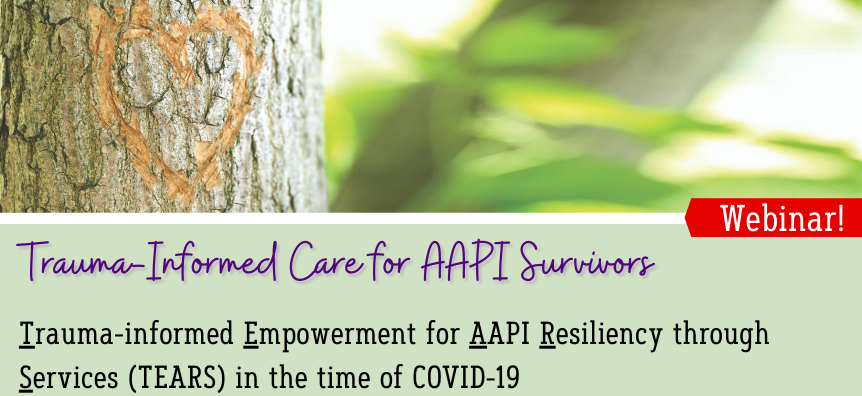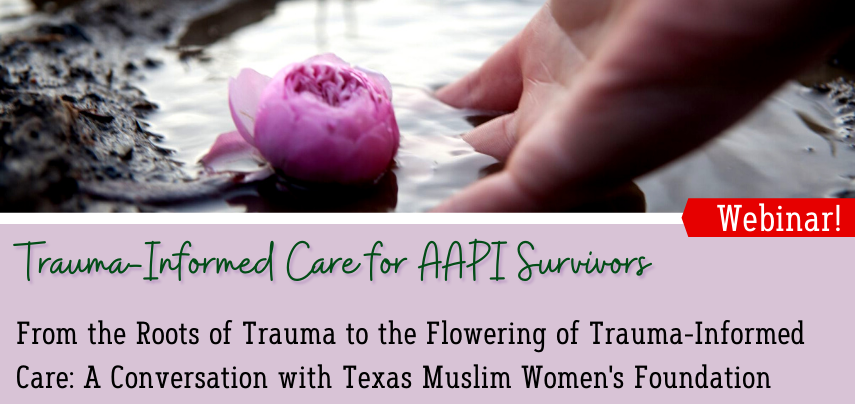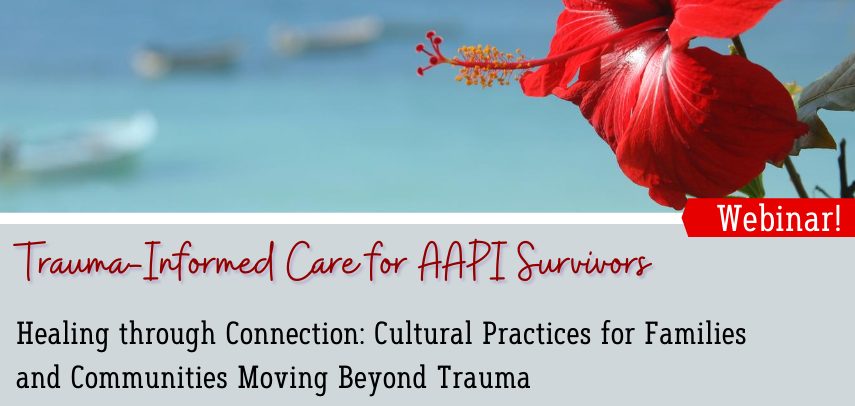Presented in collaboration with four AAPI community organizations and shelters, this webinar series explores the impacts of trauma on AAPI survivors and communities. Presenters share insight about working with survivors in shelter and through immigration and legal cases; and discuss best practices for providing culturally-specific, trauma-informed services, particularly within the context of COVID-19.
Related Resources
Vicarious Trauma and the Professional Interpreter
Studies have shown that nearly all language interpreters experience some symptoms of vicarious trauma, burn out, compassion fatigue, or increased stress as a result of their repeated exposure to trauma information and story. The Trauma & Mental Health Report had...
The Hazards of Empathy: Vicarious Trauma of Interpreters for the Deaf
Many interpreters report varying degrees of depression as well as other debilitating psychology symptoms which are psychologically driven. Our vicarious trauma serves as a catalyst for us to struggle with how and why oppresson exists and grapple with ways of...
From the Roots of Trauma to the Flowering of Trauma-Informed Care, 2020
In collaboration with Texas Muslim Women’s Foundation
This report charts TMWF’s process of becoming a trauma-informed agency which included learning about types of trauma and trauma-informed care, assessing existing culturally-sensitive practices that enhanced trauma-informed care and identifying ones that need to be added, training staff, and working with researchers to document and build a body of evidence-based practice — all the while staying survivor-centered.
Webinar Series from OVC: The OVC Vicarious Trauma Toolkit
Starting 10/18/19 Do you see signs that victim service work is negatively impacting your staff and volunteers? Are you ready to lead your agency in addressing this work-related trauma exposure and becoming a vicarious trauma-informed organization? Please join this...
Trafficking: Trauma & Trauma-Informed Collaboration & Advocacy, 2018
Building from what trafficking survivors have taught us, this webinar discusses how to identify survivors, how past experience of help-seeking can influence current attempts, and the importance of trauma-informed care at different points of contact with survivors such as raids, arrest, and at shelters.
Considerations and Recommendations on Trauma-Informed Advocacy for Trafficking Survivors, 2017
This TA Brief addresses the complexity of advocacy for adult and minor survivors of trafficking. Topics include: Definitions, Analysis/Root Causes, Trauma-Informed Advocacy, Endangerment & Confidentiality, and Considerations & Recommendations at Points of Contact — raids, arrest, custody and release, legal processes, shelters, and health and mental health systems.
Webinars on Survivor-Centered, Trauma-Informed Advocacy for Trafficking Survivors
a. Advocacy & Services for Trafficking Survivors, 2014: A comprehensive overview of sex and labor trafficking – actions/means/purposes, data, root causes, traumas and oppressions, help-seeking, legal remedies, cross-systems trauma-informed collaboration.
b. Supporting Domestic Trafficking Survivors, 2015: Two national experts, Tina Frundt and Elisabeth Corey, lay the foundations for understanding domestic minor sex trafficking, followed by the traumatic impacts of victimization and operationalizing trauma-informed responses within new and existing advocacy structures and partnerships.
c. The Culture of Family-Controlled Trafficking, 2016: Elisabeth Corey reaches into her story to teach us about the traffickers, the enablers, and the family on the outside and inside that operate family-controlled trafficking; and how survivors can be helped.

Part 1: August 27, 2020
Presented by Daya, Inc. and Center for the Pacific Asian Family

Part 2: September 3, 2020
Presented by Texas Muslim Women’s Foundation

Part 3: September 17, 2020
Presented by Domestic Violence Action Center


